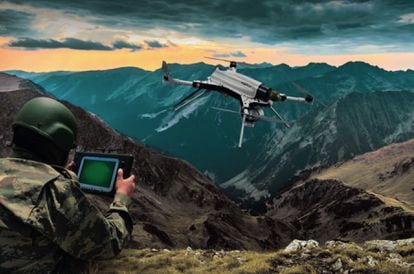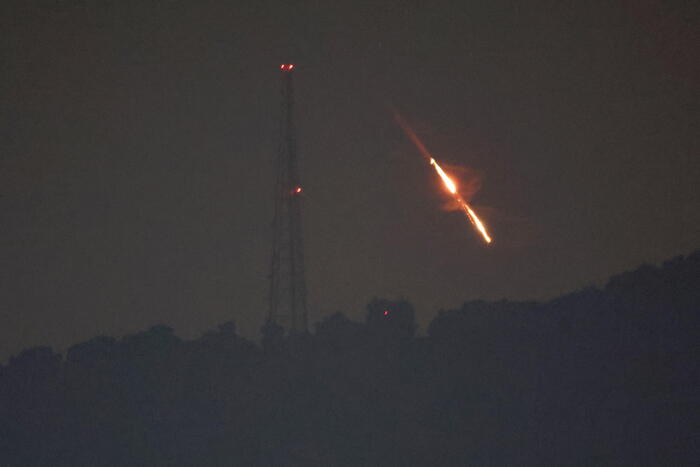Promotional image of the Turkish drone KarguKargu
Is it too late to ban lethal autonomous weapons?
Military drones could have attacked human beings completely autonomously for the first time last year in Libya, according to a report released by the United Nations and collected by
New Scientist
magazine
.
Details of the incident or if there were fatalities have not been released.
The United Nations report refers to an episode that occurred in March 2020 during the civil war that ravages Libya and that confronted the then UN-recognized Prime Minister, Faiez Serraj Fayez Sarraj, with the troops led by General Jalifa. Hafter, 77, a strongman from the east of the country and backed by Russia. This war fostered the birth of trafficking mafias that sent more than 100,000 irregular migrants to Europe each year, plunged the country with the largest oil reserves in Africa into misery and led to the arrival of the Islamic State. Last December, the country's Parliament approved the formation of a transitional government promoted by the UN, led by Abdelhamid Dabeiba, a 61-year-old millionaire businessman
That day, Serraj announced Operation
Peace Storm
against the rebel forces with the support of Turkey. This offensive led to the withdrawal of Hafter's forces, whose troops were later pursued and attacked from a distance, according to the UN, "by unmanned combat aerial vehicles or lethal autonomous weapons systems such as the STM Kargu-2." Its use and deployment is in violation of paragraph 9 of resolution 1970 (2011).
STM is a Turkish company established in 1991. The weapon used, this STM Kargu-2, is a drone capable of carrying out attacks in swarm mode and operating autonomously, according to the company itself. The device "can be used effectively against static or moving targets thanks to its real-time image processing capabilities and the machine learning algorithms built into the platform," the company explains. These devices can be remote controlled. They are, however, equipped with electro-optical and infrared video cameras to a laser imaging system (LIDAR) that allow them to operate completely autonomously. Thanks to machine learning, devices can be taught to detect and interpret movements of troops or military units such as tanks.
These deadly lethal autonomous weapons systems were programmed off the Libyan coast to "strike targets without requiring data connectivity between operator and ammunition", in the words of the United Nations, with "a true ability to
shoot, forget and find.
”. The unmanned combat aerial vehicles and the small intelligence, surveillance and reconnaissance capacity of drones available to the forces affiliated with Hafter were neutralized by electronic interference thanks to the Koral electronic warfare system.
Drones, in fact, have become the spearhead of Turkey's interventions in Libya, Syria and the Caucasus, where they have proven superior to Russian air defense systems, considered among the most advanced on the market. These devices were used in the battle between Armenia and Azerbaijan for the enclave of Nagorno Karabakh at the end of last year.
“Until now we have seen drones in auxiliary or reconnaissance roles, or in missions to eliminate specific targets, as the US has done in Yemen, Somalia or Afghanistan. But in Karabakh we have seen for the first time a war in which drones carry practically the entire weight of the air campaign, ”Defense analyst Jesús Manuel Pérez Triana told EL PAÍS last November. It is not that drones are the future, "they are the present," emphasizes Pérez Triana. The operation in Libya, in this way, represents a step forward in the use of these weapons.
The drones used in the Caucasus, as in Libya, also carry the Turkish signature.
These conflicts are also used as a showcase for Turkey to promote its technology: Qatar, Ukraine, Pakistan and Serbia have acquired or shown interest in acquiring Turkish drones.
"Turkey has not overtaken the US, China or Israel as a producer of drones," says Dan Gettinger, an analyst at the Mitchel Institute for Aerospace Studies.
"But it is becoming an emerging market."
You can follow EL PAÍS TECNOLOGÍA on
and
or sign up here to receive our
weekly newsletter
.







